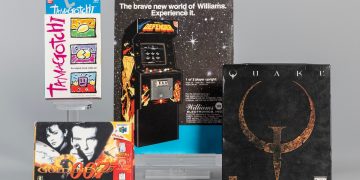The upcoming game, Like a Dragon: Pirate Yakuza in Hawaii, stands out as an intriguing and bold addition to the Ryu Ga Gotoku series. This latest entry embraces innovative storytelling, fresh themes, and unique gameplay mechanics. It offers a captivating twist on the Hawaiian setting that fans got a glimpse of in the previous Like a Dragon installment, and it reintroduces a fan-favorite character, Goro Majima, as the protagonist.
Majima finds himself shipwrecked on Hawaii’s shores, plagued by amnesia in Like a Dragon: Pirate Yakuza in Hawaii. This sets the stage for a more tender, yet just as unpredictable, portrayal of the iconic character. The game wonderfully merges the classic and modern gameplay elements of the series, particularly in combat, striking a perfect balance between the beat-em-up style and traditional RPG components.
Scheduled for release on February 21, the game seeks to push the envelope by combining pirate-themed adventures and naval battles with the series’ traditional land-based exploration and combat. While the setting is a novel take on Hawaii’s Infinite Wealth environment, what truly excites fans is Majima’s role at the center of this new adventure.
Majima, a pivotal icon in the series, has rarely taken the lead role, with his notable appearance as a protagonist in the beloved Yakuza 0. Known for his unpredictable and quirky nature, Majima’s combat style is equally distinctive. Pirate Yakuza promises to let players experience this unique blend of chaos and skill like never before.
In a recent reveal, Ryu Ga Gotoku showcased some of Majima’s new fighting styles for Pirate Yakuza. Players can expect his famous Mad Dog style to include a Madness Gauge, a mechanism that levitates the intensity of battle. Filling this gauge unlocks fearsome manifestations of Majima to fight alongside the player, a nod to the dynamic experiences fans have cherished through the years.
The game further incorporates these fantastical combat elements into the Sea Dog style, enabling players to summon supernatural allies like sharks and other creatures into the fray. This kind of gameplay resonates well with the RPG aspects introduced in the turn-based Like a Dragon titles, featuring Ichiban Kasuga. Those titles embraced the series’ quirky and open-ended nature, whereas games like The Man Who Erased His Name remained true to the serious tone and explosive combat style of the traditional Yakuza formula.
In this manner, Pirate Yakuza aims to celebrate both the varied personas within the Like a Dragon series. It incorporates RPG elements without limiting itself to turn-based action. Majima’s memory loss poetically aligns with embracing the series’ modern themes and mechanics while staying faithful to the combat foundations that have propelled Like a Dragon to global acclaim.
As the game gears up for its release, fans are eager to explore how these elements come together, ensuring Like a Dragon: Pirate Yakuza in Hawaii brings an enriching and immersive experience to the series.










![[PS5] Review of Lost Records: Bloom and Rage – Tape 2 [PS5] Review of Lost Records: Bloom and Rage – Tape 2](https://www.intergamerz.com/wp-content/uploads/2025/04/Complimentary-Game-Lost-Records-Bloom-and-Rage-PS5-Giveaway-North-360x180.jpg)






















![[Industry Direct] PHI Studio & Agog Invite Applications for a Four-Week Residency for Immersive Artists [Industry Direct] PHI Studio & Agog Invite Applications for a Four-Week Residency for Immersive Artists](https://www.intergamerz.com/wp-content/uploads/2025/05/Industry-Direct-PHI-Studio-Agog-Invite-Applications-for-a-360x180.jpg)












